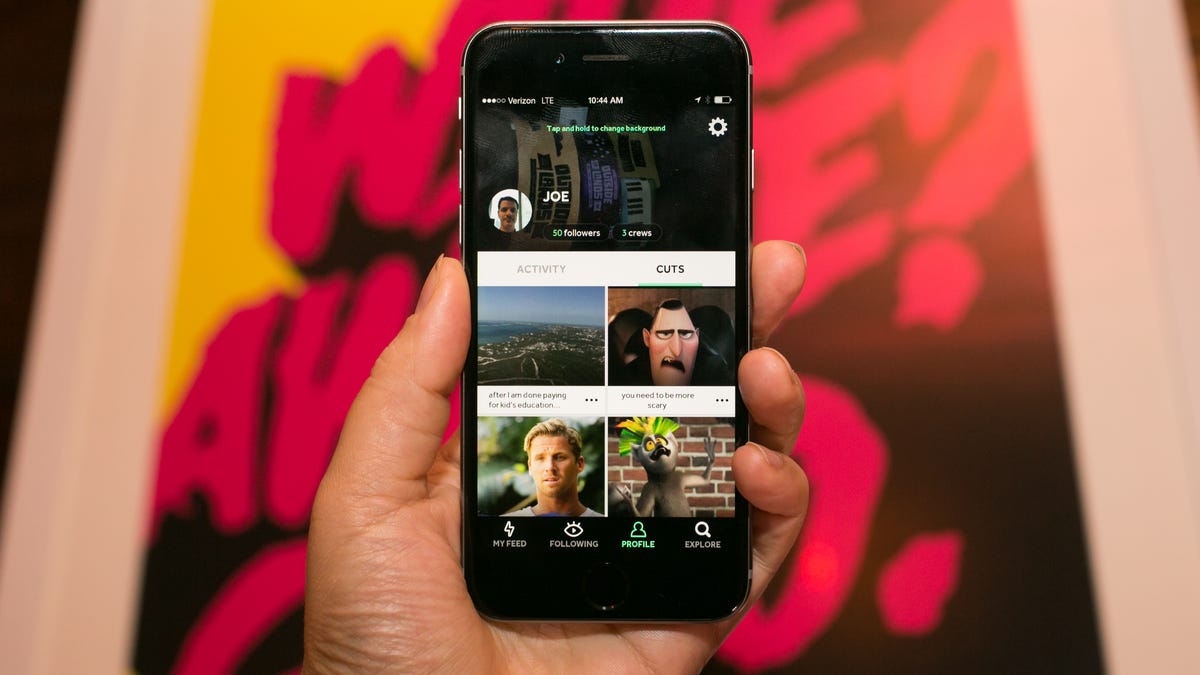Is Verizon killing it as a mobile video star?
The Go90 mobile video service launched in September, but Verizon's staying mum about its progress even amid fourth-quarter results that topped expectations.
Verizon doesn't simply want to be your wireless provider. It hopes you'll be glued to your phone watching its videos, too.
That's the goal of Go90, the mobile video service Verizon launched in September with clips from YouTube stars like the Smosh guys, the National Football League (with which it has an exclusive deal) and old favorites such as "Mythbusters."
Go90 marks another attempt by an old-school company to break out of its traditional business and deliver you video through the Internet, in this case a cellular or Wi-Fi connection to your phone. Companies such as Dish Network and Sony are offering online TV services, and rival carrier AT&T is readying its own service to be unveiled later this month.
While Verizon is known for a high-quality wireless network and the FiOS home Internet and cable-TV subscription services, the free and widely available Go90 underscores the company's desire to cater to everyone -- anyone with a phone can use the service.
Go90 just needs to get out from under the legacy of failures that have undercut Verizon's past video ambitions. The New York-based company once attempted to take on Netflix with its own online video-on-demand service, Redbox Instant, only to shutter it in 2014. In 2012, it put an end to its own mobile video service, V Cast Video (rebranded as Verizon Video).
Verizon believes it's cracked the formula with Go90.
Verizon executive Marni Walden is in charge of the Go90 mobile video service.
"We've learned a lot from the past," said Marni Walden, president of Verizon's new business unit, in a September interview after the launch. "We have spent a tremendous amount of time trying to answer what would differentiate us this time around."
It's had a rough start, however. The app quickly fell off the top charts on the Apple App Store and Google Play store. On Thursday, Verizon stayed silent on the progress of Go90 in its fourth-quarter earnings report, offering only a single reference to the service in its press release.
Verizon Chief Financial Officer Fran Shammo, however, opened up a bit. "We're seeing some positive results," he said in an interview on Thursday. "It's just the beginning."
He said he was encouraged by how often people would check into the service, and would be more forthcoming on details of its progress in two quarters.
While Go90 represents where Verizon wants to go, it has a minimal impact on near-term financial results. The company added 1.5 million wireless subscribers in the quarter, its growth largely fueled by customers who snapped up tablets. The company has been under pressure from increased promotional activity by smaller carriers Sprint and T-Mobile.
The slower growth comes amid a general slowdown in customer growth, as folks have generally committed to their carrier of choice and there are fewer people who haven't already signed up for service.
Still, customers stuck with Verizon despite the competitive wireless environment. The company's turnover rate fell below 1 percent, down 18 basis points from a year ago, demonstrating a high level of loyalty.
For the fourth quarter, Verizon posted a profit of $5.39 billion, or $1.32 cents a share, reversing a year-earlier loss of $2.23 billion, or 54 cents a share. Revenue rose 3.2 percent to $34.25 billion.
Stripping out one-time items, the company's adjusted earnings of 89 cents a share topped the 88 cents a share that Wall Street expected, according to Thomson Reuters.
Verizon shares rose 2.7 percent to $45.62 in recent trading on Thursday.
Updated at 7:54 a.m. PT: To include comments from a Verizon executive.


